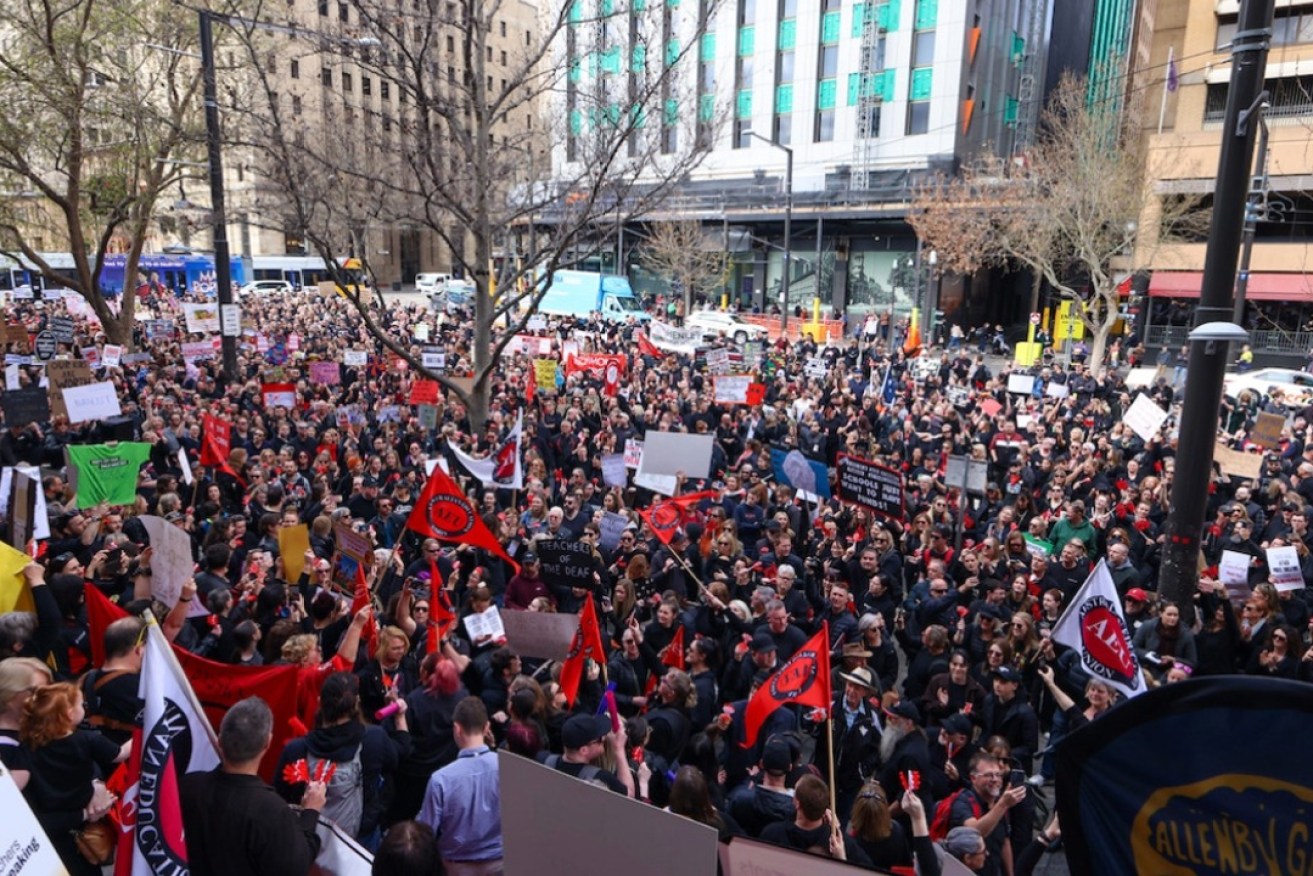Strikes over as teachers accept new pay deal
South Australia’s public school teachers have accepted a $1.6 billion pay deal from the state government after months of negotiations and two strikes.


Public school teachers rally at Parliament House during their first strike on September 1. Photo: Tony Lewis/InDaily
The Australian Education Union said a majority of members voted in favour of accepting the deal, ending months of dispute.
The deal will boost teacher pay by 13 per cent over the life of the enterprise agreement. Teachers will also get a 4 per cent raise back paid to May 2023, and a 3 per cent annual rise over three years.
It follows three previous offers that the union rejected, prompting two strikes and the closure of hundreds of schools.
AEU state president Andrew Gohl said the offer was the “largest-ever investment in an education Enterprise Agreement”.
“We get four increases over the life of the agreement, which is probably the most significant increase for any public sector workforce in recent times,” Gohl told InDaily.
“I would like to thank members for an amazing collective effort. Members have supported us in negotiations – the reason why industrial action is sometimes needed is to create that shift in bargaining.
“It’s a really big step forward. Those who were unhappy with the offer will certainly start to see a bit more detail come out and that will be useful in understanding how far we have actually pushed this government.”
Education Minister Blair Boyer welcomed the decision.
“The offer is valued at more than $1.6 billion and takes into account salary and workload, key issues raised by the union,” he said.
“The package addresses the issues teachers and principals told us are important – pay, workload, classroom complexity and supporting country educators.
“I’m looking forward to taking the next steps to finalise the agreement so we can get that pay rise in the pockets of our teachers as quickly as possible.”
In addition to the raise, teachers will also get an extra hour to plan lessons by 2028, $16 million each year to reduce administrative workloads for preschool directors, and three more days for mentoring early-career educators.
In November, the union demanded a 15 per cent pay increase over the EBA’s lifespan, which would have seen top public educators earn an extra $17,000 annually.
Gohl said the support from members was “a strong endorsement of an agreement that sets us on a path toward addressing the long-term challenges facing our profession”.
“Full funding for public schools is the next logical step to ensure future agreements are not subject to the same budgetary constraints we have experienced this year,” he said.
“South Australia currently receives $121 million less than the minimum School Resourcing Standard which is responsible for some of the major concerns we have raised in this campaign.
“I say to governments both state and federal, that while this agreement takes practical steps towards addressing the current workload challenges, we are facing a national teacher shortage crisis that requires bold change and investment.”




